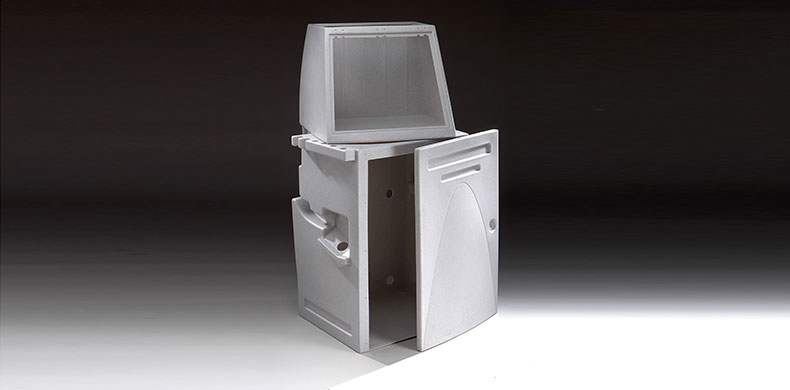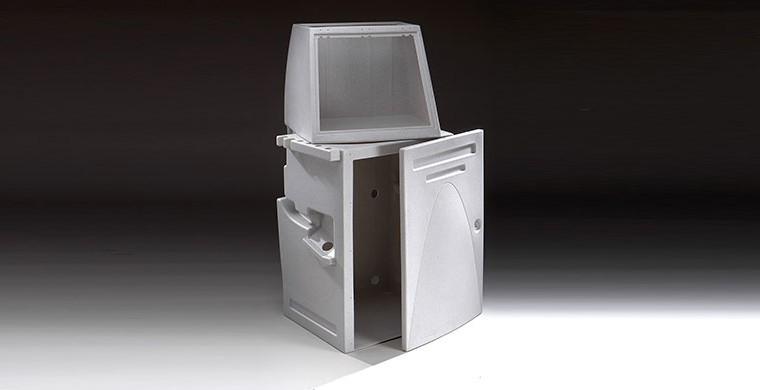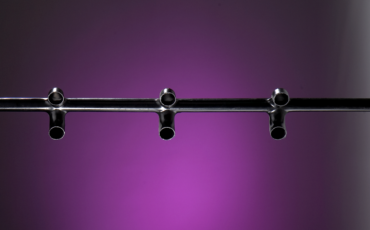
Plastic housings enclose and protect electronics, electrical connections, and equipment. Compared to metals, plastics cost less and are lighter weight. They also resist corrosion and support a choice of manufacturing processes, including injection molding and rotational molding. Rotomolding uses less expensive tooling than injection molding and offers greater design flexibility. It’s an excellent choice for plastic housings, and in a range of part sizes and production volumes.
How Rotomolding Works
As this YouTube video shows, the first step of the rotational molding process involves loading powdered resin into the mold. Using bolts or clamps, the mold is then closed. Next, the mold is moved to an oven where it rotates slowly about two axes simultaneously. This biaxial rotation allows the mold to be coated evenly with plastic, yielding a uniform wall thickness.
The speed of the biaxial rotation can be adjusted to suit the shape and complexity of the plastic part. The powder resin is not centrifugally thrown against the walls of the mold. Instead, the mold runs through the pile of powder material. As heat is transferred through the mold, the resin powder melts and adheres to the mold’s surface, building up layers of plastic.
Rotomolding for Plastic Housings
Plastic housings that require hinges, gaskets, and fasteners must also resist moisture, contaminants, impact, and wear. Rotational molding supports molded-in hardware and the use of plastics that provide strong environmental resistance. It also supports doubled-walled designs with integral ribs and other reinforcing structures. Compared to injection molding, rotomolding can also produce larger parts.
There are other advantages as well. Because rotational molding is a low-pressure process, it reduces the risk of breakage for molded-in inserts. In addition, rotomolding readily support undercuts, features that can form plastic housing components like clips or snap fits. Rotational molding also supports polyurethane foam filling for greater impact resistance. For plastic housings that look great and cost less, the advantages of rotational molding are clear.
Ask Gregstrom for Plastic Housings
Are you looking for a plastics housings manufacturer? Whether you’re designing a new product or reshoring an existing one, Gregstrom is the Made in USA rotomolder that you need. For over 75 years, we’ve been helping designers and engineers to turn their ideas into reality. Today, we offer expert rotational molding along with value added services such as help with material selection, tooling, assembly, and testing.
Are you ready to discuss your plastics project? Contact Gregstrom.



